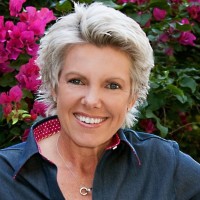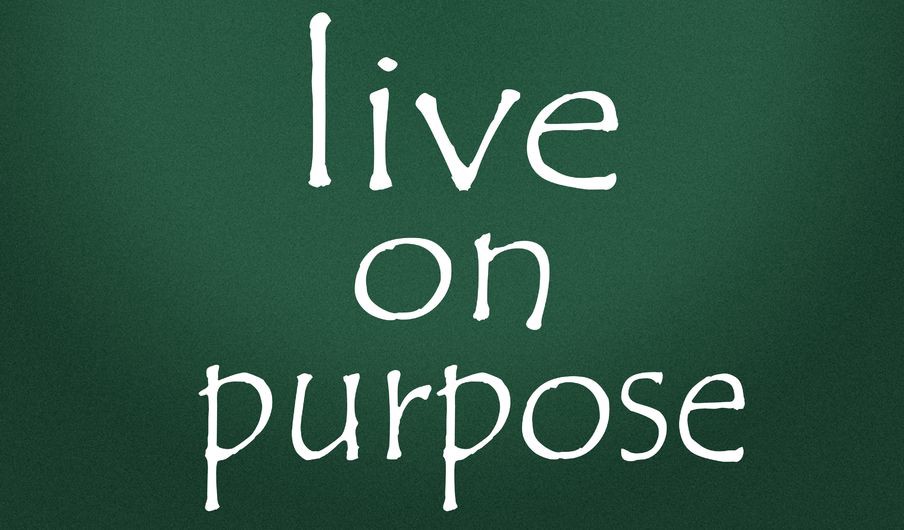The launch of Thrive Global by Arianna Huffington reflects a global movement to prioritize well-being in our workplaces and in our lives. Today, science and technology increasingly provide means for each of us to become healthier and happier. Yet, our busyness often sabotages our attempts to actually do the things that lead to our well-being.
The key to thriving in work and life is to choose to create the daily changes that will move you beyond all that holds you back and closer to all you desire. This may sound like wishful thinking, but increasingly science is showing us that conscious thinking can turn our wishes into reality.
You Are Not Alone— But You Alone Can Make Choices To Thrive!
At a time when a majority of employees are unhappy at work; stressed about money, work, family and health; and when one of the questions most asked on Google is, “Why am I always tired?,” you are not alone in asking yourself, “What do I need to do to thrive in my life?”
Consider a 2013 International Gallop Survey that found only 13% of workers internationally felt a “sense of passion for their work, and a deep connection to their employer.” Further, the report found that 63% are “not engaged … they sleepwalk through their days, putting little energy into their work.” In addition, a 2015 report by the American Psychological Association, Stress In America — Paying With Our Health, showed that nearly three-quarters (72 percent) of adults felt stressed about money; nearly one-third of Americans (32 percent) said their finances or lack of money prevented them from living a healthy lifestyle.”
Amidst such troubling and too familiar findings, we cannot give up and allow external factors to dictate our ability to thrive. We must put our own personal power into practice and break this cycle with our daily choices, starting with small and simple steps each day that lead to our greatest and most purposeful visions for our lives.
Start With A Clear Purpose That Inspires You To Live Fully.
Rabbi Noah Weinberg teaches, “If you don’t know what you’re living for, you haven’t yet lived.”
Creating your Life Vision Affirmation and embedding your vision into your daily consciousness can help transform your vision into reality. As you are more fully connected to that for which you are living, you will be more compelled to make choices each day to live more fully.
Here’s a simple approach to creating your Life Vision Affirmation:
Answer the following three questions and then insert your answers into the Life Vision Affirmation statement below to complete your vision statement:
(1) Which three feelings do you most want to feel each day? (e.g. peace, love, joy, happiness).
(2) In which two ways do you most want to affect the world? (e.g. teach, heal, empower, inspire, heal).
(3) What short statement would describe the world you would most like to create? (e.g. “A world in which all people have equal opportunity to gain an education and live their dreams”).
Insert your answers into the following Life Vision Affirmation statement:
“I feel (1) _________________, _____________________, and ___________________,
as I (2) _______________________ and ___________________ myself and others to create a world in which
(3) ____________________________________________________________ .”
Each day, ideally in the morning and evening, read this statement to yourself. After 30 days, combining the practices below, your vision is likely to be increasingly manifesting in your life.
Make Choices That Place Your Happiness In Your Own Hands.
The Dalai Lama gives us wise encouragement,“The key to my own happiness, my own good future, is within my own hands. I must not miss that opportunity.”
Fortunately, we can combine our faith, belief, and hope with science to enable us to thrive and achieve our greatest and most purposeful visions for our lives. Science is increasingly showing us that we can re-train our brains and our beings to cultivate happiness and fulfillment, despite stressful and busy external environments in which we work and live.
A few key concepts from the world of neuroscience enlighten us as to how we can change our lives if we change the way we work our brains.

- Train your brain to adapt and evolve to build your capacity in the direction of your desires. Neuroplasticity shows us that our brains adapt and evolve. When we send new messages to our brain and consistently practice new behaviors, our brain strengthens the capabilities that are required to fulfill those messages and behaviors. In essence, your brain pays attention to your words and actions. So, talk and act consistently each day in positive ways that align to your desired outcomes.
- “Screen in” external messages that help your progress. The Reticular Activating System (RAS) in our brains acts as a filter for the thousands of stimuli that bombard us each day. This is why mothers will wake hearing their babies cry, but not wake hearing many other sounds; or that once you decide you want a certain new car, you will consistently start to see that new car everywhere. Essentially, when you consciously and consistently state the things you want in your life, you start to create a filter that screens in information that enables your progress. For example, try writing down and stating each day the next opportunity you want, the relationship you want, or the most purposeful pursuits you want for yourself. Over the next month, see how much comes to you to help your progress.
- Choose a response that gets you closer to your desired outcomes. Neuro-Linguistic Programming (NLP) gives us tools and techniques to choose conscious, positive responses to the events that confront us each day. By consciously choosing a response that is not controlled by our “triggers” from the past or our insecurities and fears, but that is consciously chosen by our higher wisdom for our most positive future, we can react to daily situations in a way that helps us more than hinders us. A key component of NLP is recognizing that our negative responses contribute to our negative outcomes. We need to switch our “conditioned” negative responses to positive, empowered responses. For example, we become angry and upset that a colleague has acted against us. We respond by attacking our colleague or deciding that our colleague cannot be trusted and does not support us. Instead, we could “press pause” on our assessment and our negative feelings, and rather, talk to our colleague to understand their perspective. Simply ask, “Can you help me to understand your position?” As a result, it is highly likely that you will see things from another perspective that will empower you, rather than estrange you. Be open to new thinking, and new possibilities will emerge. It sounds simple, but you will likely be surprised by positive outcomes.
Start By Committing To The Smallest Thing You Can Do Each Day.
One of the secrets to thriving in life and moving from where you are to where you want to be is to identify the smallest thing you can do today. Ask yourself “What is the smallest thing I can do today to thrive?” If you can do something greater, great — do it, but make sure it is something that you can accomplish.
Prophet Muhammad taught, “No two things have been combined better than knowledge and patience.” So, as you proceed, use the knowledge of tools and techniques to re-train your brain, and be patient with yourself as you practice.
The following is a list of examples of daily practices and reminders. Consider using this as an introductory menu, and then build on it, with knowledge and patience. Choose just one thing today, then another tomorrow, and keep making a choice for yourself each day:

- Identify one thing you can do today that will get you a little closer to your vision for your work and life. This can be as simple as a conversation, an email request, or a Google search that will get you one step closer to where you want to be.
- Know your “unessentials” and undo them. Look at all that is on your to-do list, and then de-prioritize anything that is not essential to your purpose and happiness.
- Give yourself a break — identify one small thing that could take as little as five minutes. Listen to music, go for a walk, read, create, color!
- Identify “inner” mindfulness habits: schedule time for at least five minutes of quiet inner mindfulness to connect with your higher self and your divine wisdom (when you wake and before you sleep are especially powerful times).
- Create your “outer” lifestyle and well-being habits: exercise, eating, and sleeping are good starts.
- Give yourself a new and joyful experience today. Ignite your wonder, imagination, creativity and playfulness.
- Identify one small thing you can commit to give someone else today — a smile or simple words of support.
- Create your “stress circuit-breakers.” When you feel yourself stressed, commit to a “stress circuit-breaker” rather than an automated stressed response. For example, breathe and visualize your most peaceful place, then respond from that place of peace and calm, rather than from frustration or irritation.
- Fake it until you make it. Sometimes, when you feel most challenged during the day, you simply need to tell yourself that you can, and act like it. Your brain will start to pay attention.
- Commit to persevere. Know that change will be hard at times — stick with your new habits.
- Create a self-inspiration that is greater than your self-doubt. Be your best cheerleader!
- Make small changes in your work to practice overcoming your fears and cultivating happiness. This can be anything from organizing your work space, to getting involved in organizational community volunteer initiatives, to not reacting negatively to frustrating situations.
- Make a list of your distractions today — become aware of them and stop yourself from habitually reacting to them when they arise. Re-focus on your priorities.
- Ask yourself, “How did I contribute to making this situation happen?” Before you assign responsibility to others when things don’t meet your expectations, identify your part in creating the situation. Are your expectations and efforts negatively affecting the situation?
- Identify a conditioned habit that you are allowing to control your day. How can you say, “Stop!,” take control, and choose a different response?
Believe. Be Clear. Take Charge. Never Give Up.
When I was traveling in India several years ago, I came across a stone tablet carved with a teaching from the Buddha. I keep this quote top-of-mind every day to help me focus on all that is essential, and to remain in my most powerful mindfulness. Perhaps you will find it helpful, also. “Those who know the essential to be essential, and the unessential to be unessential, dwelling in right thoughts, do arrive at the essential.”

So, as you choose your path to thrive in your work and your life, look around and within you for all of the tools and resources available to you. Be clear on your vision. Take charge and make your best choices. Focus on the essential. Do the smallest thing each day. For more tools and resources, stay tuned to Thrive Global on Medium and at www.ThriveGlobal.com.
Remember, faith, hope, love, and science are all on your side to help you thrive!
Originally published at medium.com


